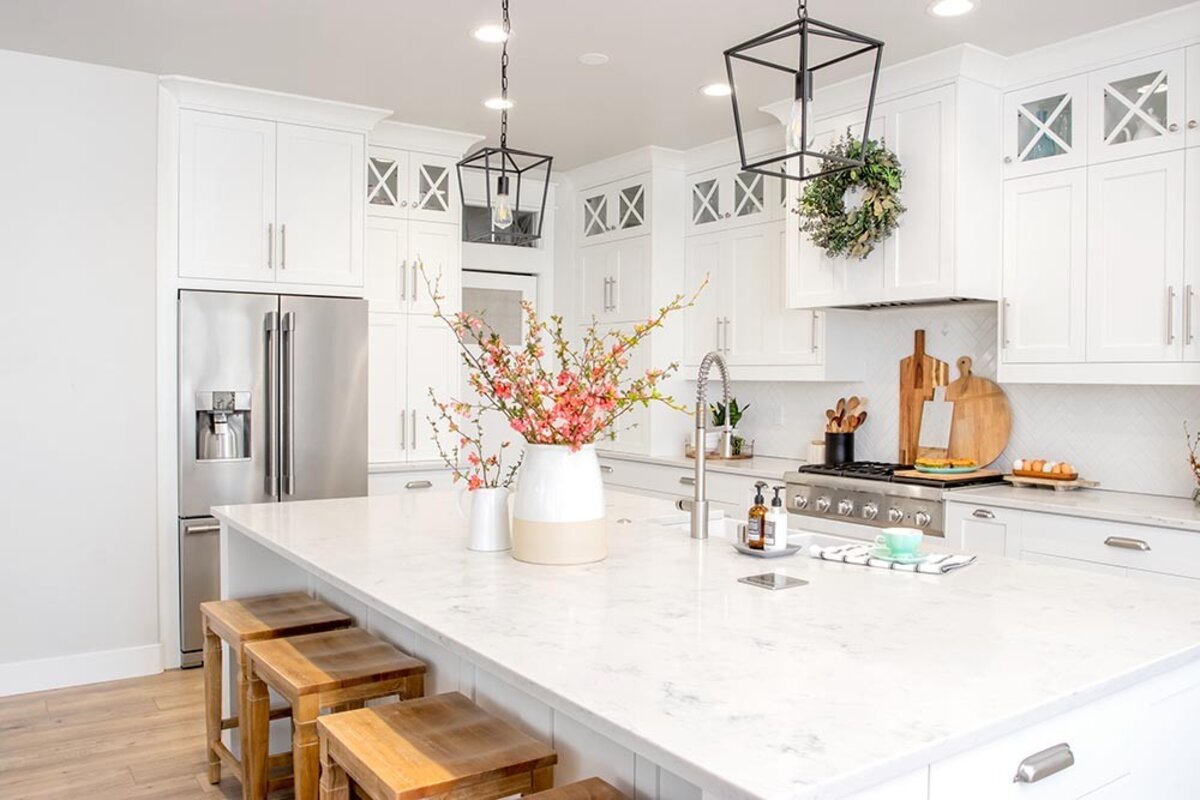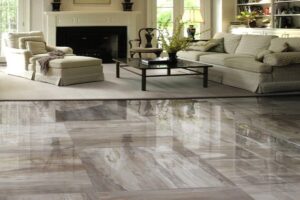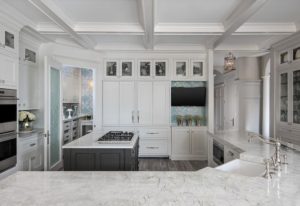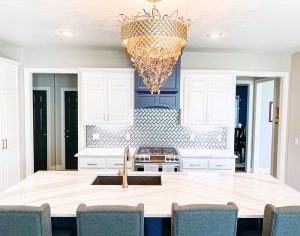Granite countertops have long been a staple in modern kitchens and bathrooms, revered for their durability and aesthetic appeal. As one of the most popular countertop materials, granite is often compared to other options like marble and quartz.
However, before you make a substantial investment in granite countertops, it’s essential to understand both their advantages and disadvantages. We’re going to break down the pros and cons of granite countertops, so you can make an informed decision for your next renovation project.
Pros of Granite Countertops
Durability
Granite is one of the hardest natural materials available for countertops, making it highly resistant to scratches and wear. This durability ensures a long lifespan for your investment. Granite is similar to marble in its overall durability and longevity.
Unique Beauty
No two slabs of granite are exactly alike, offering a unique pattern and color scheme for each countertop. This one-of-a-kind beauty adds a bespoke touch to any kitchen or bathroom.
Low Maintenance
Unlike some other countertop materials, granite is relatively easy to maintain. A simple wipe-down with mild soap and water is often enough to keep it looking pristine.
Resale Value
Granite countertops are often cited as a desirable feature in real estate listings, enhancing the resale value of your home. Their universal appeal makes them a wise investment for those planning to sell their property in the future.
Cons of Granite Countertops
Cost
While granite countertops are a long-lasting investment, they come with a higher upfront cost when compared to other materials like laminate or tile.
Weight
Granite is a heavy material, requiring robust cabinet bases to support its weight. Ensure your existing or planned cabinetry is strong enough to bear the load.
Limited Resistance to Heat
Although granite is generally heat-resistant, prolonged exposure to high temperatures can lead to discoloration or cracking. Always use trivets or heat pads when placing hot items on the surface.
Porosity
Granite is a porous material, which means it can absorb liquids and become stained if not sealed properly. Regular sealing is required to maintain its appearance and functionality.
Granite vs. Other Common Countertop Materials
When weighing your countertop options, it’s useful to compare granite to other popular materials like marble, quartz, and laminate.
- Marble: While marble offers unparalleled elegance, it is more prone to scratching and staining compared to granite.
- Quartz: This engineered stone offers a more uniform look and is non-porous, making it easier to maintain. However, it lacks the unique, natural veining that granite offers.
- Laminate: A budget-friendly option, laminate is easy to install but lacks the durability and high-end feel of granite. Laminate also doesn’t maintain the same resale value as a natural stone.
Each material has its own set of advantages and disadvantages, but granite often strikes a balanced note between beauty, durability, and maintenance needs.
Partner With A Local Leader in Granite Countertop Installation
We’ve unpacked the various pros and cons of granite countertops, from their durable nature and unique aesthetics to their cost and maintenance needs. Ultimately, the choice of countertop material should align with your lifestyle, budget, and aesthetic preferences.
If you’re considering a countertop installation or a complete kitchen or bathroom remodel, look no further than Karin Ross Designs. Our expert team offers tailored solutions that suit your specific needs, ensuring a seamless and satisfactory remodeling experience. If you think you might be ready to take your bathroom or kitchen countertops to the next level, reach out to Karin Ross today to speak with an expert member of our team.










